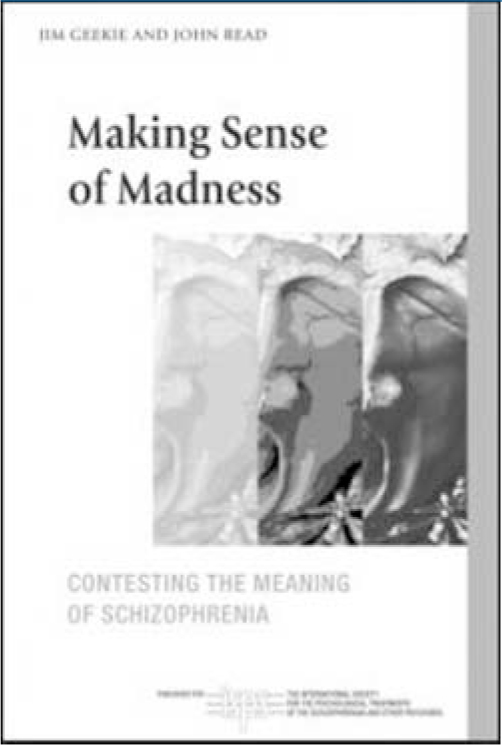
When I was trainee psychiatrist in the early 1970s there was much excitement arising from the publications of a number of charismatic figures (Gregory Bateson, R. D. Laing, David Cooper, Maxwell Jones, R. D. Scott) who were proposing a radical shift in orientation, suggesting that the focus of attention should be the inner world of those experiencing psychiatric disorders and a need to respect and restore a sense of agency, paying due attention to what was being communicated rather than collecting a tally of symptoms to justify a diagnosis. Since then their influence has waned, owing partly to considerable advances in biological understanding of mental disorders, but also to some of the questionable personal histories of those talismanic clinicians and the practices arising out of their beliefs. Some aspects of their pioneering insights were lost as a result.
This remarkable book is another addition to a number of publications trying to highlight the lived experience of those who are deemed ‘mad’, ‘schizophrenic’ or ‘psychotic’, terms which in this book are equated. The authors both work in Auckland, New Zealand, as clinical psychologists in early intervention services. Jim Geekie is a Scottishémigré who has published on psychotic experiences and John Read is an associate professor and self-confessed Tottenham supporter, a well-known researcher into psychological factors and psychosis. They give candid expression to their views and personal experiences of madness, as an attempt to inform the reader of their standpoints and biases.
They start off from the premise that any understanding of madness without the subjective experience is incomplete. They accept that professional standpoints are not usually congruent with the patient's theories, and suggest that this ‘failure of intersubjectivity’ can affect outcome if the differences are not accepted and clarified. They also point out that this stance humanises and validates rather than depersonalises the experience for the mentally unwell person.
One of the first issues to emerge from their research was the importance of each individual making sense of their experience in their own terms, not invalidated but possibly being able to share that understanding with others. Patients were interested in the causes of their experience, usually attributing multiple factors (psychological, developmental, experiential, functional and spiritual). Often it was likened to dreaming, or attempts were made to normalise the experience, seeing it as mood related, or reflecting issues of control and power, of being connected or disconnected. When given an opportunity, clients expressed their views of themselves and their minds, how they saw the world and relationships with significant others and with mental health services, what was real and what was unreal. They sometimes expressed doubt about their own judgemental capacities, with great loss of faith in oneself, a shock to the foundations of personal epistemology and ontology, the ability to trust one's acquisition of knowledge and the nature of one's personal being. This, the authors believe, is a central aspect of the therapeutic task.
So how do they make sense of madness? Unhappy and somewhat overwhelmed by the plethora of definitions, theories and treatment approaches, they turn to philosophy, specifically to Wittgenstein's linguistic philosophy, and suggest, like Gallie, that the terms used are ‘essentially contested concepts’. The multiplicity of theories then becomes part of the intrinsic quality of the concept itself. The contesting of the meaning of these terms (beauty, justice and democracy also belong to this category) is therefore an integral part of their meaning. From this vantage point, madness is something to be argued about ad infinitum; the argument can never be resolved. Recognition may enhance the quality of the debate, identifying and accepting plurality, acknowledging conscious and unconscious psychological, social and cultural factors that lead individuals, groups and cultures to take a position in the debate, and highlighting its purpose to maintain flexibility of understanding under changing conditions. The authors suggest and hope that this will lead to more sensitive, respectful and helpful services.
A book to be highly recommended, not only for those just embarking on a psychiatric career, but also for those wishing to reflect on what they have been doing all these years.



eLetters
No eLetters have been published for this article.